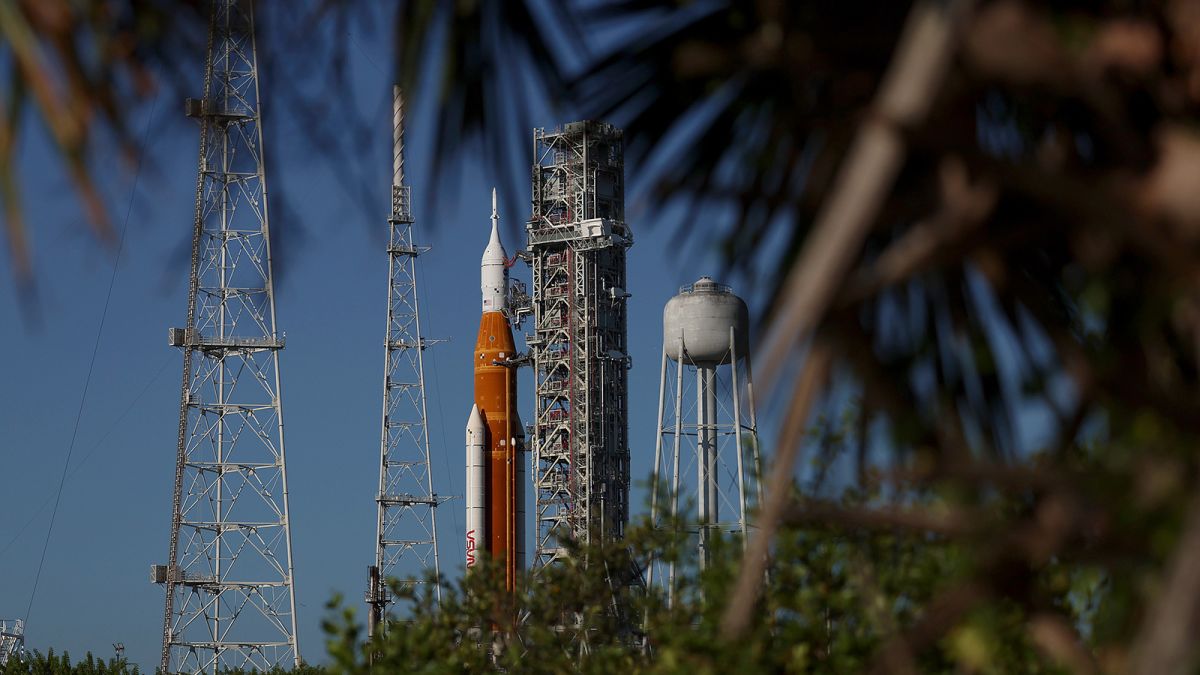These companies will design the Artemis III mission suits 1:03
(CNN) --
The Artemis I rocket will not have its third launch attempt Tuesday as scheduled due to concerns about Tropical Storm Ian heading toward Cuba and Florida.
After meeting Saturday morning, NASA's Artemis team decided to forgo the Sept. 27 launch opportunity and is now preparing the massive rocket for storage.
“On Tuesday, Tropical Storm Ian is forecast to move north across the eastern Gulf of Mexico as a hurricane, just off the southwestern coast of Florida.
A cold front will also cover northern Florida to the south," said CNN Meteorologist Haley Brink.
"The combination of these weather factors will increase the chance of rain across much of the Florida panhandle on Tuesday, including the Cape Canaveral area. Showers and thunderstorms are forecast to be numerous and widespread throughout the region. Winds with Tropical Storm Ian's strength could also arrive as early as Tuesday night in central Florida."
Meanwhile, the Space Launch System rocket and Orion spacecraft remain on the launch pad at the Kennedy Space Center in Florida.
advertising
Do humans return to the Moon?
That's right Artemis I 3:25
Team members continue to monitor the weather as they make a decision on when to bring the rocket stack back to the Vehicle Assembly Building at Kennedy.
NASA will receive information from the US Space Force, the National Hurricane Center and the National Oceanic and Atmospheric Administration to inform its decision.
Engineers have deferred their final decision on when to put the spacecraft into storage while they gather additional data and analysis.
If the team decides to push the rocket back inside the building, that process would start on Sunday night or early Monday.
The preparations can shorten the typical three-day process it takes to roll the spacecraft back inside.
And once the vehicle is rolling on the slow-moving tracked carrier, it can take 10 hours or more.
The rocket stack can remain on the platform and withstand winds of up to 136 km/h.
If the rocket needs to roll back into the building, it can handle sustained winds of less than 45 mph.
On Friday, the Artemis team said that October 2 was a backup release date.
But it's unlikely a new release date will be set until the decision to roll back has been made.
"The agency takes a phased approach in its decision-making process to allow the agency to protect its employees by completing a safe list in time so they can address the needs of their families while also protecting the option to move forward with another launch opportunity in the current window if weather forecasts improve," according to a NASA statement.
Concerns about the formation of the weather system in the Caribbean make weather conditions only 20% favorable for a launch, according to a forecast released by the US Space Force on Friday.
Restrictions on launch require that the Artemis I mission not fly through any precipitation.
The launch restrictions are designed to prevent natural and rocket-induced lightning strikes in mid-flight, which could damage the rocket and endanger public safety, according to the Space Force.
Rocket-fired lightning forms when a large rocket flies through a strong enough atmospheric electric field that a cloud that doesn't produce natural lightning could still cause rocket-fired lightning, according to the Space Force.

